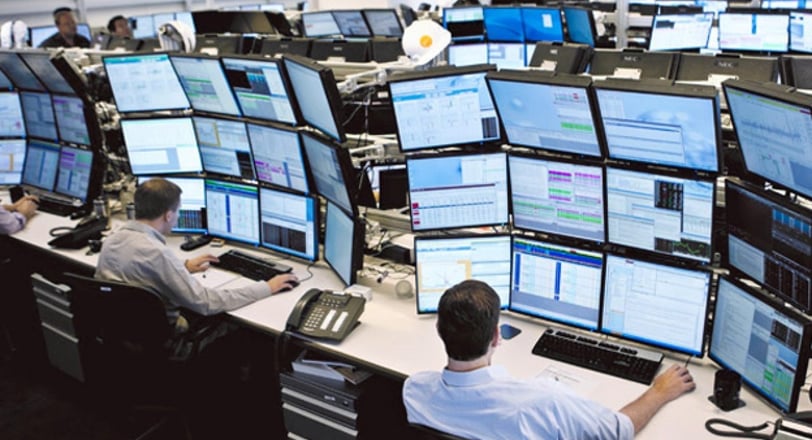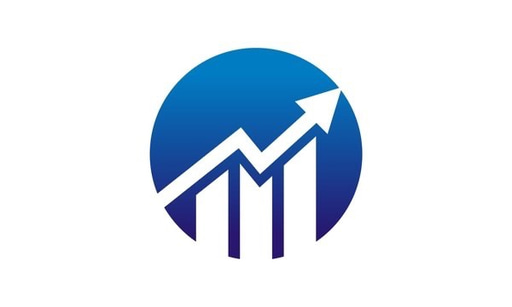Market Makers vs. Dealers
This post explores the critical roles of market makers and dealers in financial markets, detailing their functions, obligations, and how they facilitate liquidity. Market makers ensure continuous buy and sell quotes on exchanges, stabilizing prices, while dealers buy and sell securities for their own accounts, especially in OTC markets. Understanding their differences and contributions helps investors appreciate how these intermediaries keep markets efficient, transparent, and accessible.
TRADING
12/8/20246 min read


In This Post:
Introduction
What Is a Market Maker?
Key Functions of Market Makers
What Is a Dealer?
Key Functions of Dealers
How Market Makers and Dealers Operate
Key Differences Between Market Makers and Dealers
Examples of Market Makers and Dealers
Importance in Financial Markets
Conclusion
Key Takeaways
Definition of Market Makers: Market makers are financial entities that continuously provide buy and sell quotes, ensuring liquidity and price stability on exchanges by profiting from the bid-ask spread.
Definition of Dealers: Dealers act as principals in transactions, buying and selling securities for their own accounts, particularly in over-the-counter (OTC) markets.
Roles and Obligations: Market makers are obligated to provide continuous quotes and facilitate trades, while dealers trade at their discretion without the commitment to provide constant liquidity.
Trading Environments: Market makers operate on centralized exchanges like the NYSE and NASDAQ, whereas dealers are active in OTC markets where trades occur privately.
Profit Mechanism: Both market makers and dealers profit from the bid-ask spread, but market makers rely on high-frequency, small trades, while dealers focus on larger, strategic trades.
Risk Exposure: Market makers typically hold securities for short periods, minimizing inventory risk, while dealers may hold securities longer, facing greater exposure to price fluctuations.
Market Impact: Together, market makers and dealers enhance liquidity, stabilize prices, and ensure efficient market operations, benefiting both individual and institutional investors.
Market Makers vs. Dealers: Essential Players in Financial Market Liquidity
Market makers and dealers are two pivotal entities in financial markets that ensure the efficient functioning of trades, maintain liquidity, and contribute to market stability. Though their roles share similarities, such as facilitating transactions and profiting from the bid-ask spread, they operate under distinct principles, obligations, and mechanisms. Understanding these differences is essential for investors, traders, and market participants who wish to navigate the intricacies of buying and selling securities. This guide provides an in-depth exploration of market makers and dealers, detailing their operations, responsibilities, trading models, and impacts on financial markets.
What Is a Market Maker?
A market maker is a financial entity—usually a bank, brokerage firm, or specialized trading firm—that continuously provides buy and sell quotes for specific securities. By maintaining an active presence in the market, market makers ensure that there are always opportunities for buyers and sellers to execute trades promptly. This process is vital for maintaining market liquidity, particularly for frequently traded assets like stocks, options, and exchange-traded funds (ETFs).
Market makers commit to "making a market" by providing two-way quotes: a bid price (the price at which they are willing to buy) and an ask price (the price at which they are willing to sell). The difference between these prices is known as the bid-ask spread, which represents their profit margin for facilitating trades. For example, a market maker might quote a bid of $100 and an ask of $100.05, earning $0.05 per share on each completed trade.
Market makers are often required by exchanges to meet certain obligations. They must ensure their quotes remain competitive, provide liquidity during trading hours, and stabilize prices by absorbing excess market volatility. This obligation ensures that even in times of market stress or low trading volume, market makers are present to facilitate trades.
Key Functions of Market Makers
Market makers perform several essential functions that help keep markets orderly and efficient:
Providing Constant Liquidity: Market makers ensure that investors can buy and sell securities quickly without significant delays. By offering continuous quotes, they minimize the risk of market disruptions due to a lack of buyers or sellers.
Narrowing Bid-Ask Spreads: Market makers compete with each other to offer the most competitive bid and ask prices. This competition narrows the spread, reducing transaction costs for investors.
Price Stabilization: During periods of market volatility, market makers help stabilize prices by stepping in to buy when there is excess selling pressure and sell when there is excess buying pressure.
Efficient Trade Execution: Market makers facilitate swift execution of trades, allowing investors to complete transactions without prolonged waiting periods.
What Is a Dealer?
A dealer is a financial intermediary that buys and sells securities for its own account, acting as a principal rather than an agent. Dealers assume the risk of holding securities in their inventory and aim to profit from price movements. Unlike market makers, who are obligated to provide continuous quotes, dealers have the flexibility to decide when and how much they want to trade based on their market outlook and strategic objectives.
Dealers operate in various financial markets, including stocks, bonds, forex, and commodities. They are particularly active in over-the-counter (OTC) markets, where transactions occur directly between parties rather than on centralized exchanges. In these markets, dealers provide a critical source of liquidity by maintaining inventories of securities and facilitating trades for clients.
For example, in the bond market, a dealer might purchase bonds from issuers or other investors and hold them until they find buyers willing to purchase the bonds at a higher price. Dealers often specialize in specific types of securities, such as corporate bonds, municipal bonds, or mortgage-backed securities.
Key Functions of Dealers
Dealers contribute to market efficiency through their unique roles and activities:
Trading for Profit: Dealers buy securities at a lower price and sell them at a higher price, profiting from the spread. This business model requires them to manage inventory risk effectively.
Providing Inventory: By maintaining inventories of various securities, dealers ensure that they can meet client demand quickly. This capability is crucial in OTC markets, where trades are negotiated privately.
Facilitating OTC Transactions: Dealers play a critical role in OTC markets by acting as direct counterparties to trades. They provide quotes, negotiate terms, and execute transactions outside formal exchanges.
Market Insights: Dealers often have access to extensive market data and insights, which they use to inform their trading strategies and offer valuable information to clients.
How Market Makers and Dealers Operate
While both market makers and dealers facilitate the buying and selling of securities, their operating models differ significantly.
Market makers operate primarily on organized exchanges such as the New York Stock Exchange (NYSE) and NASDAQ. They are often appointed or registered with these exchanges and must adhere to specific regulatory requirements. Market makers use advanced trading platforms and algorithms to provide continuous bid and ask quotes, ensuring liquidity and stability. Their primary goal is to facilitate trades between other market participants, profiting from the spread while managing the risk of holding inventory for short periods.
Dealers, on the other hand, often operate in decentralized OTC markets. They buy and sell securities for their own accounts, making them principals in transactions. Dealers are not obligated to provide continuous quotes and have greater discretion in their trading activities. They may hold securities for longer periods, speculating on price movements and managing inventory risk. Dealers are critical in markets where large or complex trades occur, such as the bond market, where transactions often require negotiation and customization.
Key Differences Between Market Makers and Dealers
The distinctions between market makers and dealers are essential for understanding their respective roles and impacts on financial markets:
Obligations and Commitment: Market makers are obligated to provide continuous quotes and ensure liquidity, while dealers have no such obligation and trade based on their discretion and market outlook.
Role in Transactions: Market makers act as intermediaries, facilitating trades between buyers and sellers. Dealers act as principals, buying and selling securities for their own accounts.
Market Environment: Market makers operate mainly on centralized exchanges with transparent pricing and strict regulations. Dealers are prevalent in OTC markets, where trades occur privately and are less transparent.
Risk Exposure: Market makers typically hold securities for very short periods, managing minimal inventory risk. Dealers may hold securities for extended periods, exposing them to greater price risk.
Profit Mechanism: Both entities profit from the bid-ask spread, but market makers rely on high volumes of small, frequent trades, while dealers may focus on larger trades and strategic inventory management.
Examples of Market Makers and Dealers
Market Makers include major financial firms such as Citadel Securities, Virtu Financial, and Goldman Sachs. These firms provide liquidity for various securities, ensuring efficient trade execution on major exchanges.
Dealers include investment banks and broker-dealer firms such as J.P. Morgan, Morgan Stanley, and Merrill Lynch. These institutions are active in bond markets, forex, and other OTC markets, where they buy and sell securities from their inventories.
Importance in Financial Markets
Market makers and dealers are indispensable for the smooth operation of financial markets. Market makers ensure that securities can be traded promptly by offering continuous buy and sell quotes, which enhances liquidity and stabilizes prices. Their presence reduces transaction costs, narrows bid-ask spreads, and prevents price disruptions during low-volume periods.
Dealers provide liquidity in OTC markets, where large, customized trades occur outside centralized exchanges. They facilitate complex transactions, manage inventory risks, and contribute to market efficiency by ensuring that buyers and sellers can execute trades even in less liquid markets.
Together, market makers and dealers create a dynamic, interconnected system that supports efficient, transparent, and reliable financial markets. Their activities benefit individual investors, institutional traders, and the broader economy by ensuring that capital flows smoothly and markets remain resilient.
Conclusion
Market makers and dealers play vital roles in maintaining market liquidity, stability, and efficiency. While market makers provide continuous quotes and facilitate trades on exchanges, dealers trade for their own accounts, particularly in OTC markets. Understanding the nuances between these entities helps investors appreciate the mechanisms that underpin modern financial markets. Both market makers and dealers contribute to a well-functioning, transparent, and accessible financial system, ensuring that investors can buy and sell assets with confidence.
